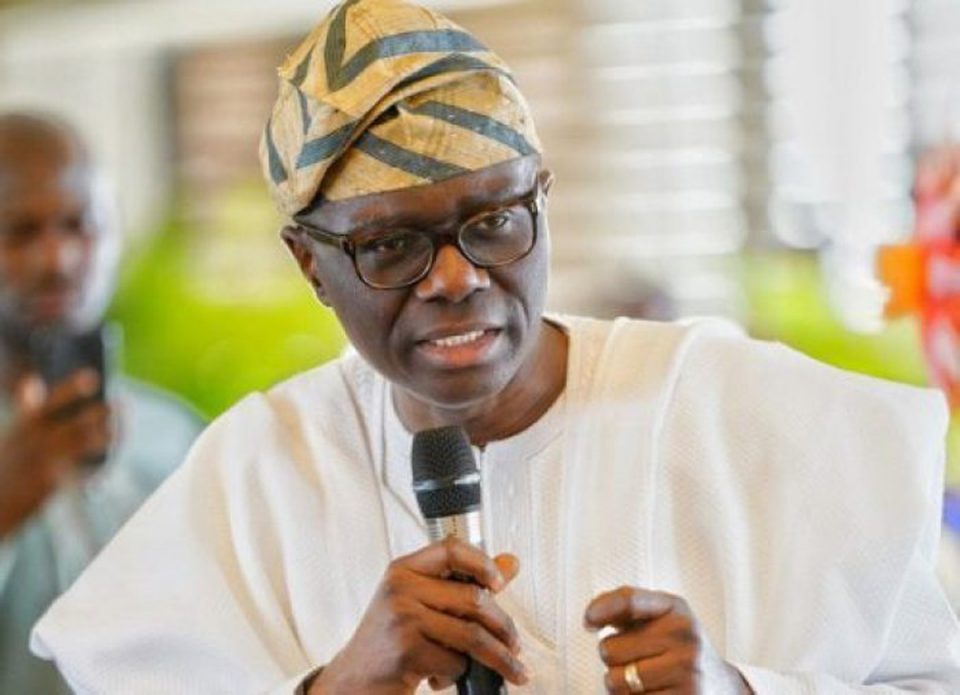The Governor of Lagos State, Mr Babajide Sanwo-Olu, said on Sunday that he would continue to build on the legacies of his predecessors to support the growth of the local economy.
Sanwo-Olu made the assertion at the Lagos State Day of the Lagos International Trade Fair.
The programme was organised by the Lagos State Ministry of Commerce, Industry and Cooperatives.
“In line with my government commitment to move Lagos State to 21st economy, I shall continue to build on the legacies of my predecessors by supporting the growth of our local economy, improving the ease of doing business, providing easy access to finance, repositioning the public service and accelerating infrastructure intervention to ensure Lagos maintains her pride of place,” he said.
The governor said the day was significant because it showcased the state policies and projects, as well as socio cultural projects to international business communities.
He commended Lagos Chamber of Commerce and Industry (LCCI) for organising an impressive fair.
Sanwo-Olu was represented by the Commissioner for Commerce, Industry and Cooperatives, Dr Lola Akande.
The Special Adviser on Sustainable Development Goals, Mrs Solape Hammond, said the state government needed the Micro Small and Medium Enterprises to succeed and grow.
“The trade fair is one of the landmark events that Lagos State holds and one that people look forward to.
“So, this fair is not just for Lagos State, its a global fair and Lagos has to be business-ready and focused.
” For Lagos to succeed, we need the private sector, and for business to work, we need the Small and Medium enterprises, ” she said.
The Commissioner for Commerce, Industry and Cooperatives, Dr Lola Akande, said the participation of the state government was to show support for MSMEs to showcase their products to the world.
“The participation of the state government in the annual trade fair has afforded the State Government the opportunity to accommodate a large number of Micro, Small and Medium Enterprises.
” The participation has given MSMEs the opportunity to showcase their products and services to international business community.
“This is one of the many ways in which the state government is promoting and providing support to our MSMEs,” Akande said.
Akande’s speech was read by the Special Adviser for Commerce and Industries, Mr Oladele Ajayi.
Earlier, the President, LCCI, Mr Babatunde Ruwase, advocated the restructuring and diversification of the economy.
“The Lagos Chamber is drawing the attention of policy makers and economic managers on the need to restructure and diversify the productive base of the economy to critical non-oil sectors like agriculture and manufacturing.
“The Chamber remains resolute in promoting value addition in the non-oil sector in a bid to enhance industrialization and fast-track the pace of economic growth.
“Lagos State, which is Nigeria’s commercial capital, would be the 5th biggest economy in Africa, if it were a country.
” Lagos State alone accounts for almost a third of Nigeria’s aggregate internally generated revenue (IGR).
“The state takes the front seat as the most attractive investment destination in Nigeria.
“For context, official data by the National Bureau of Statistics showed Lagos State attracted USD 4.13 billion worth of foreign capital in the second quarter 2019, which is 72 per cent of total USD 5.82 billion imported to Nigeria,” he said.
Ruwase commended Sanwo-Olu for his private sector-led growth initiative and his resolve to make Lagos work for everyone.
He said his administration had continued to leverage Private-Public Partnerships (PPPs) to promote sustainable growth and development.
He said the USD 629 million financing facility between Lagos State and China’s Harbour Engineering Company (CHEC) for the completion of Lekki Deep Seaport project due 2021, was an attestation of robust investor confidence in the state.
Ruwase said that the Lekki Free Trade Zone, which offers incentive like 100 per cent ownership of foreign investment, repatriation of dividend and profit and tax-free on goods imported for re-exports, was a perfect example of the state’s resilience to foster investment.




